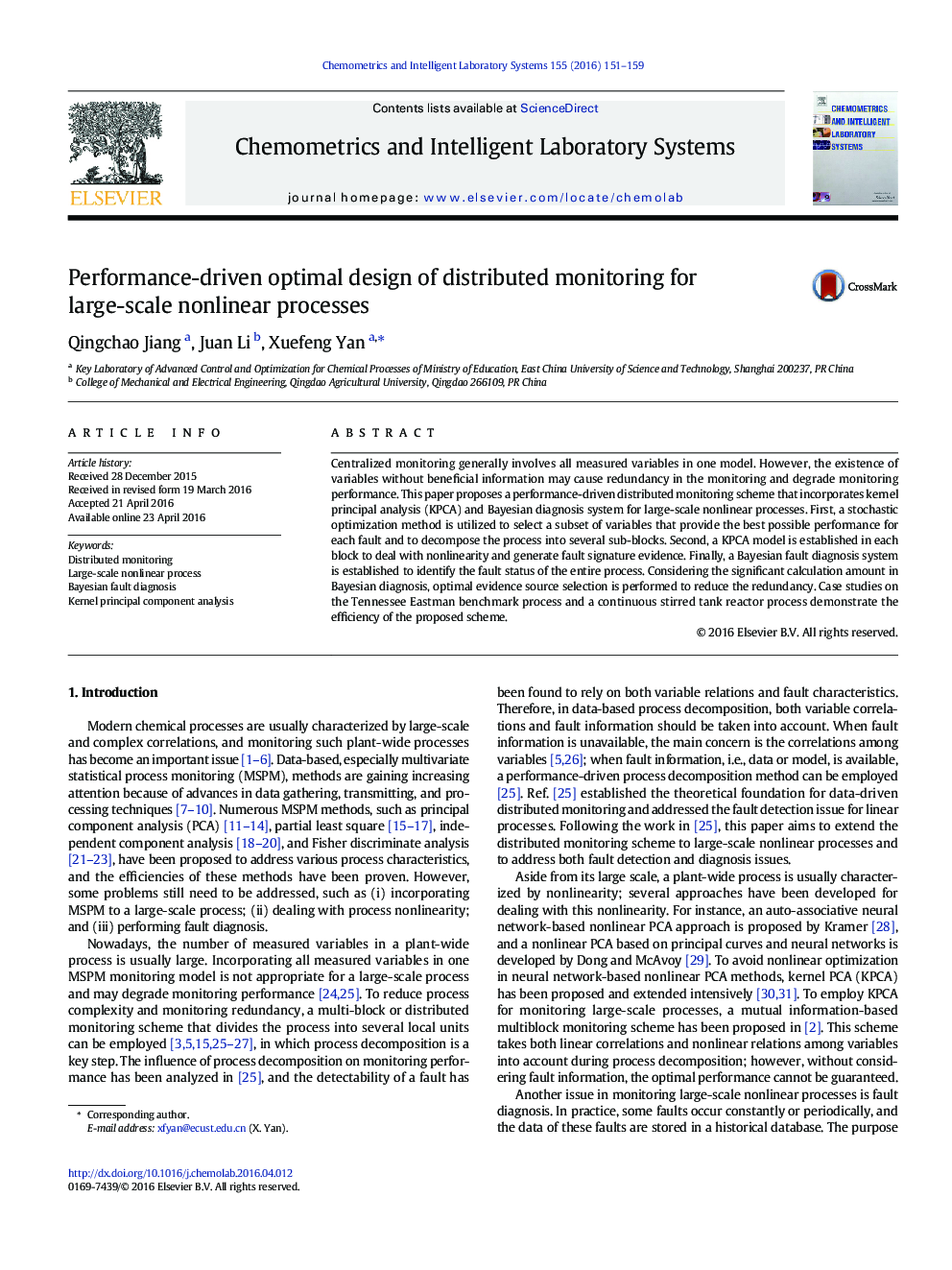| Article ID | Journal | Published Year | Pages | File Type |
|---|---|---|---|---|
| 1180208 | Chemometrics and Intelligent Laboratory Systems | 2016 | 9 Pages |
•A distributed monitoring scheme for large-scale nonlinear processes is developed.•A performance-driven variable selection method is utilized to decompose the process.•A KPCA model is established in each sub-block to deal with the nonlinearity.•A Bayesian diagnosis system is established to identify the fault status.•The efficiency and feasibility are demonstrated.
Centralized monitoring generally involves all measured variables in one model. However, the existence of variables without beneficial information may cause redundancy in the monitoring and degrade monitoring performance. This paper proposes a performance-driven distributed monitoring scheme that incorporates kernel principal analysis (KPCA) and Bayesian diagnosis system for large-scale nonlinear processes. First, a stochastic optimization method is utilized to select a subset of variables that provide the best possible performance for each fault and to decompose the process into several sub-blocks. Second, a KPCA model is established in each block to deal with nonlinearity and generate fault signature evidence. Finally, a Bayesian fault diagnosis system is established to identify the fault status of the entire process. Considering the significant calculation amount in Bayesian diagnosis, optimal evidence source selection is performed to reduce the redundancy. Case studies on the Tennessee Eastman benchmark process and a continuous stirred tank reactor process demonstrate the efficiency of the proposed scheme.
